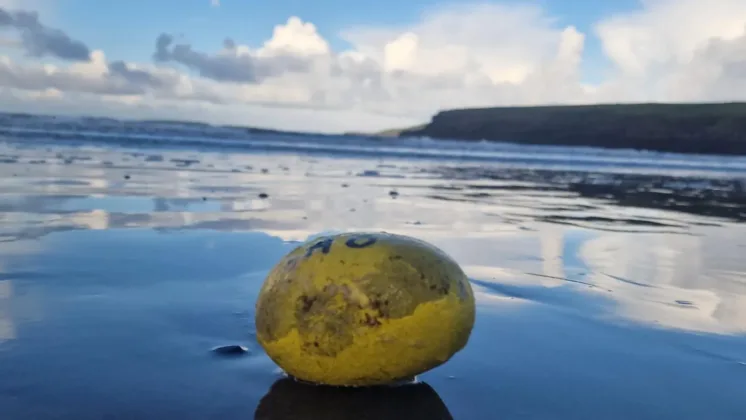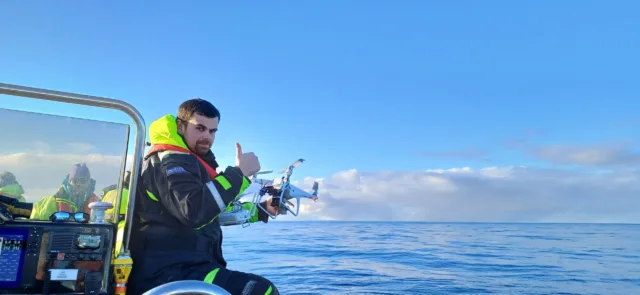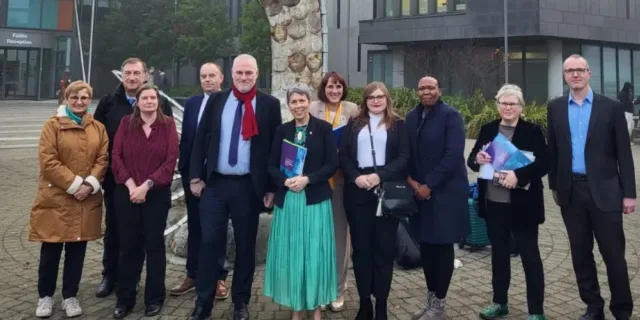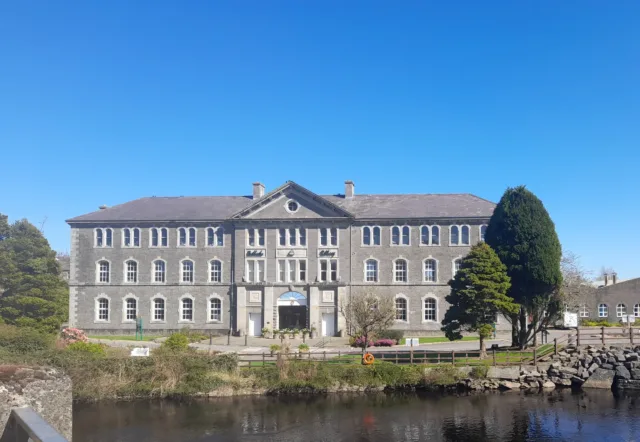View all Courses
SCORE innovative citizen science activities and “smart pebbles” to tackle climate change in coastal areas
The SCORE (Smart Control of the Climate Resilience in European Coastal Cities) Project, led by Atlantic Technological University (ATU), in collaboration with 27 partners, has set out on a mission to increase coastal community resilience to catastrophic disasters by involving local communities and “Smart Pebbles” in a creative co-monitoring and co-warning initiatives. The rise in sea level brought on by climate change is posing an increasing threat to coastal cities in Europe, with rates double those of the global average. By utilising an innovative methodology, SCORE incorporates citizen science into efforts to monitor coastal areas. The project relies on several initiatives, such as ‘Smart Pebbles’, already implemented in Sligo, Dublin and Massa (Italy), where citizens can deposit smart pebbles on the beach, which will be 3D scanned and tracked over time; the MINKE water quality sensors installed in Sligo and nearby regions helping the Sligo-based ATU research team in understanding the background scenarios with their capability to monitor the water quality with a temporal resolution of as large as one minute; or the CoastSnap initiative which will be implemented at Enniscrone, Dunmoran, and Streedagh beaches in Sligo to facilitate the continuous monitoring of shoreline variations and beach morphology by local inhabitants and visitors using their smartphones. Through close collaboration with local stakeholders and scientific partners, SCORE has developed and implemented inexpensive sensors to monitor coastal dangers like erosion, storm surges, and sea level rise. Compared to conventional approaches, SCORE offers an affordable option that involves citizen scientists in a network that complements official monitoring instruments. Citizen science refers to the involvement of the general public in scientific research activities. It empowers individuals from diverse backgrounds to contribute their observations, data, and expertise to various scientific projects. Through citizen science initiatives, volunteers collaborate with researchers to collect and analyse data, monitor

The SCORE (Smart Control of the Climate Resilience in European Coastal Cities) Project, led by Atlantic Technological University (ATU), in collaboration with 27 partners, has set out on a mission to increase coastal community resilience to catastrophic disasters by involving local communities and “Smart Pebbles” in a creative co-monitoring and co-warning initiatives.
The rise in sea level brought on by climate change is posing an increasing threat to coastal cities in Europe, with rates double those of the global average. By utilising an innovative methodology, SCORE incorporates citizen science into efforts to monitor coastal areas.
The project relies on several initiatives, such as ‘Smart Pebbles’, already implemented in Sligo, Dublin and Massa (Italy), where citizens can deposit smart pebbles on the beach, which will be 3D scanned and tracked over time; the MINKE water quality sensors installed in Sligo and nearby regions helping the Sligo-based ATU research team in understanding the background scenarios with their capability to monitor the water quality with a temporal resolution of as large as one minute; or the CoastSnap initiative which will be implemented at Enniscrone, Dunmoran, and Streedagh beaches in Sligo to facilitate the continuous monitoring of shoreline variations and beach morphology by local inhabitants and visitors using their smartphones.
Through close collaboration with local stakeholders and scientific partners, SCORE has developed and implemented inexpensive sensors to monitor coastal dangers like erosion, storm surges, and sea level rise. Compared to conventional approaches, SCORE offers an affordable option that involves citizen scientists in a network that complements official monitoring instruments.
Citizen science refers to the involvement of the general public in scientific research activities. It empowers individuals from diverse backgrounds to contribute their observations, data, and expertise to various scientific projects. Through citizen science initiatives, volunteers collaborate with researchers to collect and analyse data, monitor environmental changes, and address scientific questions on a large scale.
Dr Salem Gharbia, the SCORE Project Coordinator and Head of Department of Environmental Science at Atlantic Technological University, Sligo campus, says:
“Our aim is to equip Europe’s coastal cities with comprehensive early support warning systems, underscoring the power of community engagement and cutting-edge technology.”
To encourage cooperation between non-experts and scientists, SCORE created a Do-It-Yourself (DIY) framework for citizen research prior to sensor deployment. The project makes data publicly available on the SCORE data platform, delivers customised instructions, and offers community support during installation.
“SCORE’s initiatives highlight the power of citizen science in addressing coastal challenges. We’re excited about the promising outcomes and look forward to further engagement with communities and stakeholders,” adds Dr Gharbia.
For further information on SCORE please visit: https://score-eu-project.eu/.
About SCORE:
SCORE (Smart Control of Climate Resilience in European Coastal Cities) is a €10m Horizon 2020-funded research project led by Atlantic Technological University (ATU). It is a four year project which started in July 2021.
SCORE aims to design, develop, monitor, and validate robust adaptation measures in coastal and low-lying areas to protect them from increasing climate and sea level risks, including coastal flooding and erosion, to enhance their overall long-term resilience.
SCORE outlines a co-creation strategy developed via a network of 10 coastal city ‘living labs’ (CCLLs) to rapidly, equitably and sustainably enhance coastal city climate resilience through Ecosystem-Based Approaches (EBAs) and sophisticated digital technologies.
SCORE will establish an integrated coastal zone management framework for strengthening EBA and smart coastal city policies, creating European leadership in coastal city climate change adaptation in line with The Paris Agreement.
The SCORE interdisciplinary team consists of 28 world-leading organisations from academia, local authorities, RPOs, and SMEs. It encompasses a wide range of skills, including environmental science and policy, climate modelling, citizen and social science, data management, coastal management and engineering, security, and technological aspects of smart sensing research.
List of coastal city living labs involved in the SCORE Horizon 2020 project:
Sligo and Dublin, Ireland; Barcelona/Vilanova i la Geltrú, Benidorm and Basque Country, Spain; Oeiras, Portugal; Massa, Italy; Piran, Slovenia; Gdansk, Poland; Samsun, Turkey.





